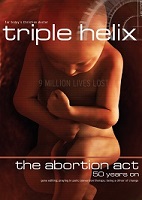Martin Luther did not do anything particularly unusual when he nailed 95 'debating points' to the door of the Castle Church in Wittenberg, Germany. In those days it was the way to trigger debate in university towns and most such endeavours ran their course and were quickly forgotten. Martin Luther's action, however, entered a perfect storm. A rare combination of circumstances: unhappiness with a corrupt Church, a yearning for spiritual renewal, clamour for political change, the 'new learning' and the revolutionary power of new printing technology all combined to fuel a robust movement of the Spirit as had never been seen before.
Medicine quickly came under the influence of the renewed understanding of faith heralded by the Reformation. Christians already had the teaching and example of Jesus and his apostles which led to the natural marriage of Christianity and medicine throughout the centuries. But this gained fresh impetus, voice and expression after the Reformation. It continued through the Puritan century, the evangelical revival and the social reforms that went with it. Then followed the 19th century world missionary movement where healthcare played a vital role. In parallel came medicine as a vocation, application of scientific evidence, medical training, whole person medicine, specialities, ethics, public health and medicine in the developing world. We still bask in its legacy today.
Critics of the Reformation will point to the disruption caused in England by King Henry VIII's closure of the monasteries, indirectly depriving many suffering and disabled people of their only means of support. They have a point. We are not saying that every political consequence of the Reformation was good for medicine and society. But this disruption was not permanent. Luther and John Calvin (1509-1564) abolished the distinction between secular and sacred callings. They broadened the idea of vocation by incorporating into it the secular professions.
Luther became influential in changing how the public viewed physicians by emphasising that most diseases could be traced to natural explanations and were not always caused by black magic and Satan. He promoted medicine by advocating that physicians should be used whenever possible to treat a disease. He believed God would reveal medical information to physicians who sought answers. Physicians were, in this way, similar to ministers who could heal the heart and soul and act as extensions of God's will. Specifically, Luther recommended the use of apothecaries, barbers, physicians, and nurses to cure physical ailments when he ministered to the sick. He recommended fumigation for homes contaminated with the plague and avoidance of unnecessary travel and exposure to different places.
Clergy-physicians played an important role among Protestant ministers from the 16th through the 18th centuries. In an age in which trained physicians were especially uncommon in villages and rural areas, the Protestant belief in an educated clergy ensured a supply of persons who had both the leisure and the learning to read medical books. John Wesley (1703-1791) took a course in medicine so that as a minister he could be of help to those who had no regular physician. In 1746 he opened a dispensary and in the next year published a lay medical guide, Primitive Physick.
18th century Edinburgh, the centre of Presbyterianism, shaped by connections with Calvin's Geneva, saw one of the most celebrated medical faculties in Europe and in the eighteenth century the Christian hospital movement re-emerged. The religious revival sparked in England by the preaching of John Wesley and George Whitefield was part of an enormous unleashing of Christian energy throughout 'Enlightenment' Western Europe and America. It reminded Christians to remember the poor and needy in their midst. They came to understand afresh that bodies needed tending as much as souls. A new 'Age of Hospitals' began, founded by Christians, with new institutions built by devout Christians for the 'sick poor', supported mainly by voluntary contributions. Healthcare by Christians in continental Europe received new energy.
Christians were at the forefront of the dispensary movement (the prototype of general practice), providing medical care for the urban poor in the congested areas of large cities. When the National Health Service took over most voluntary hospitals, it became clear just how indebted the community was to these hospitals and the Christian zeal and money that supported them over centuries. In fact, the NHS was essentially created through the nationalisation of Christian hospitals like St Bartholomew's, St Thomas's, St Mary's and St George's.
Christian thought has also shaped much of the modern profession's ethical conduct, promoting personal integrity, truthfulness and honesty. Much more could be said about the Christian contribution to medicine applying the worldview shaped by the Reformation. But to borrow words from Hebrews 11, 'I do not have time to tell'.
Extracted from a lecture to the Guildford Diocesan Evangelical Fellowship
Peter Saunders is CMF Chief Executive.
































